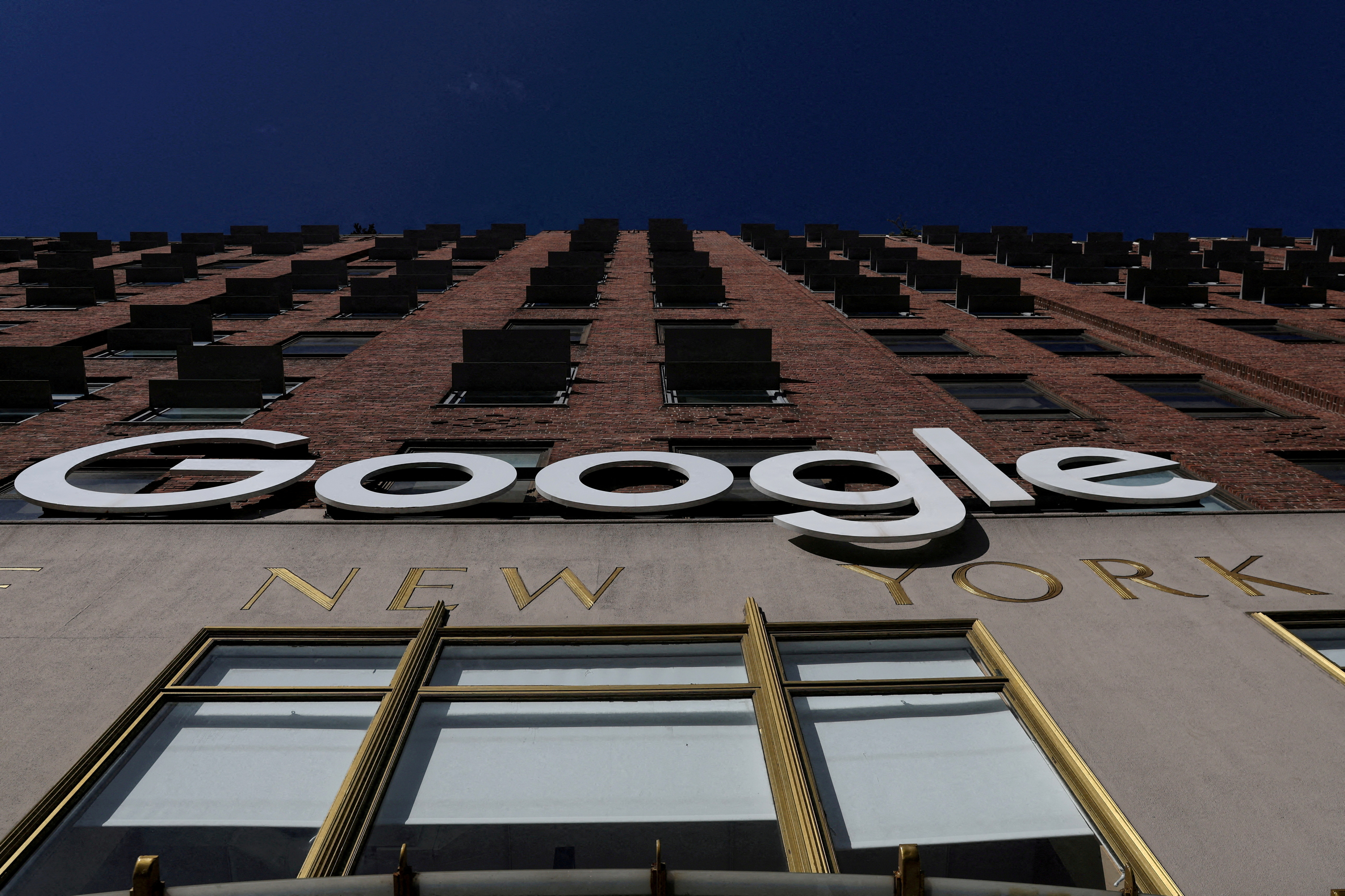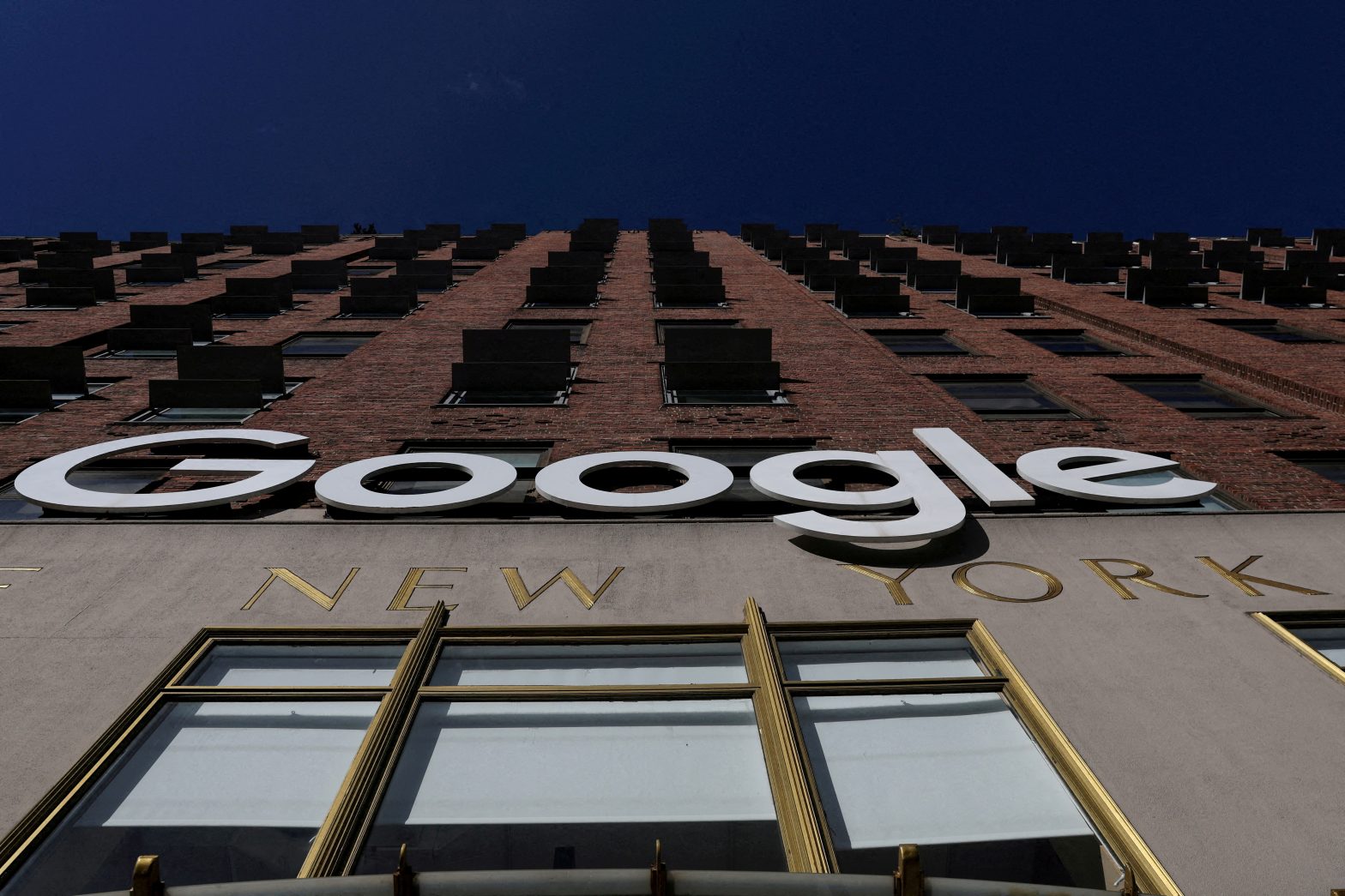
A Google logo is seen at the Google offices in the Chelsea section of New York City, U.S., January 20, 2023. REUTERS/Shannon Stapleton//File Photo Acquire Licensing Rights
ARLINGTON, Virginia Sept 15 (Reuters) – U.S. District Judge Leonie Brinkema on Friday declined to order a Justice Department official to stay out of the government’s advertising antitrust lawsuit against Alphabet’s (GOOGL.O) Google but said the department “should think about it.”
In November 2021, Google asked the Justice Department to consider requiring Jonathan Kanter, assistant attorney general in charge of antitrust, to recuse himself because of his work for a long list of Google critics.
The government has argued that Google should be forced to sell its ad manager suite. Google has denied any wrongdoing. The Justice Department filed the advertising lawsuit in January in Arlington, Virginia, along with eight states, and nine other states joined in April.
While Brinkema declined to order Kanter recused, she seemed skeptical during a court hearing that he should be involved and added that the Justice Department should “use some wisdom” in deciding what to do.
In addition to its well-known search engine, which is free, Google makes revenue through its ad tech businesses. The government has accused Google of abusing its dominance in digital advertising to win higher profits.
Advertisers and website publishers have complained that Google has not been transparent about where ad dollars go, specifically how much goes to publishers and how much to Google.
Separately, in nearby Washington, D.C., Google is fighting a 2020 antitrust lawsuit filed by the United States which accuses the company of using illegal means to stay on top in search. The trial in that case wraps up its first week on Friday.
Google has denied wrongdoing in both cases. In the search case, it argues that it is on top because of its high quality. In the advertising technology, it argues that its market share, 70%, is not high enough to have market power and that there is no evidence that advertisers were harmed because of Google’s conduct.
Reporting by David Shepardson; additional reporting by Diane Bartz; editing by Timothy Gardner
Our Standards: The Thomson Reuters Trust Principles.
